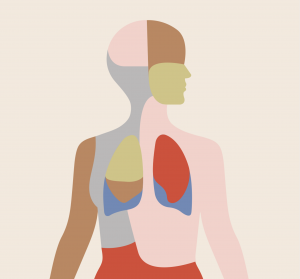When it comes to cancer, SurvivorNet not only believes in the importance of speaking about one's physical health, but also one's mental health. That's why we've teamed up with Dr. Marianna Strongin, a licensed clinical psychologist, to respond to SurvivorNet reader questions, tackling topics that range from conquering treatment fears to self rediscovery and everything in between. (You can submit your questions here.)
*****
Read MoreAs you work your way through treatment the way in which you coach yourself is critical. Studies have found that positive self-talk significantly reduces anxiety, improves resilience and confidence and allows us to be connected with others. As you courageously make your way through this chemotherapy it is critical that your self talk is supportive, patient and overall kind. There will be moments of intense pain, discomfort and even setbacks. Your body may be saying “no more” but your mind has the power to kindly say, “you got this, one foot in front of the other, this pain is temporary.”
During chemotherapy, many people experience a breakdown between the mind and body. I strongly suggest you create an internal dialogue that connects your body and mind even when it feels difficult. Guiding your body through pain with your mind will make you feel more in control, focused on the present and give you a greater understanding and appreciation for your strength.

*****
I was a 22-year old professional tennis player. My entire life was to sleep, eat, train and repeat. I was homeschooled to have more time to train. I never even went to college as I made my first pro tour at 17-years old. I loved life despite feeling more exhausted from all of the traveling. I went to the doctor for my yearly physical and as one thing led to another, I was diagnosed with leukemia. After a year of intense treatment and anxiously waiting to start training again, my doctor told me that it’s possible I won’t be able to play at that level again. With my 24th birthday around the corner, this was supposed to be the peak of my career. Of course I worry about my health, but who am I without tennis?
Dr. Strongin: The mindset of an athlete is trained to be resilient, precise and focused. Often, we use sports psychology to help patients prepare for cancer treatment and use that approach as a way to guide and keep their momentum. Your dedication to your tennis career may be on hold for now, but it will surely guide and help you in your road to recovery.
I can understand how scary it might feel to know that your future self may not be able to compete at the same level, especially since you have dedicated most of your life to this sport, however, rather than trying to predict your game in the future, your present self needs all of your attention and comfort. Your power to rebuild yourself is very much tied to your mindset and if you jump too far ahead into the future you will lose balance and create more anxiety. Instead, I suggest you use all that training to focus on healing yourself now so that your future self can focus on rebuilding.
Tennis is embedded in your identity and will continue to be, but it may look and feel a bit different. Professional athletes often come to this at some point in their career either through age, setbacks, health or injuries. It is in these moments that they begin to expand on their identity. You can be a tennis player and many other things. Rather than focusing on what you might be losing, it might be helpful to also focus on what you are gaining. You are now a brave athlete who has gone through cancer treatment. As you begin to rebuild yourself, I urge you to leave room to grow into more than a tennis player. Sometimes our biggest setbacks are also opportunities to expand and experience something new.
Learn more about SurvivorNet's rigorous medical review process.

